Related Research Articles
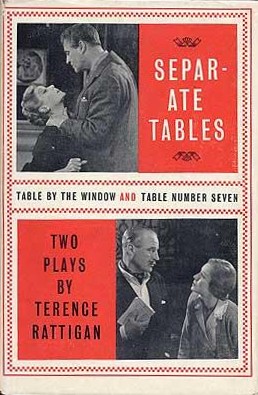
Separate Tables is the collective name of two one-act plays by Terence Rattigan, both taking place in the Beauregard Private Hotel, Bournemouth, on the south coast of England. The first play, titled Table by the Window, focuses on the troubled relationship between a disgraced Labour politician and his ex-wife. The second play, Table Number Seven, is set about 18 months after the events of the previous play, and deals with the touching friendship between a repressed spinster and Major Pollock, a kindly but bogus man posing as an upper-class retired army officer. The two main roles in both plays are written to be played by the same performers. The secondary characters – permanent residents, the hotel's manager, and members of the staff – appear in both plays.
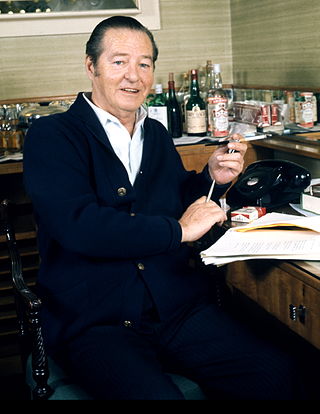
Sir Terence Mervyn Rattigan was a British dramatist and screenwriter. He was one of England's most popular mid-20th-century dramatists. His plays are typically set in an upper-middle-class background. He wrote The Winslow Boy (1946), The Browning Version (1948), The Deep Blue Sea (1952) and Separate Tables (1954), among many others.

The Deep Blue Sea is a British stage play by Terence Rattigan from 1952. Rattigan based his story and characters in part on his secret relationship with Kenny Morgan, and the aftermath of the end of their relationship. The play was first performed in London on 6 March 1952, directed by Frith Banbury, and won praise for actress Peggy Ashcroft, who co-starred with Kenneth More. In the US, the Plymouth Theater staged the play in October 1952, with Margaret Sullavan. The play with Sullavan subsequently transferred to Broadway, with its Broadway premiere on 5 November 1953, and running for 132 performances.

Kenneth Gilbert More, CBE was an English film and stage actor.
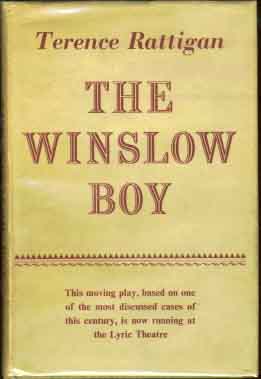
The Winslow Boy is an English play from 1946 by Terence Rattigan based on an incident involving George Archer-Shee in the Edwardian era. The incident took place at the Royal Naval College, Osborne.

Peter John Sallis was an English actor, known for his work on British television. He was the voice of Wallace in the Academy Award-winning Wallace and Gromit films and played Norman "Cleggy" Clegg in Last of the Summer Wine from its 1973 inception until the final episode in 2010, making him the only actor to appear in all 295 episodes. Additionally, he portrayed Norman Clegg's father in the prequel series First of the Summer Wine.
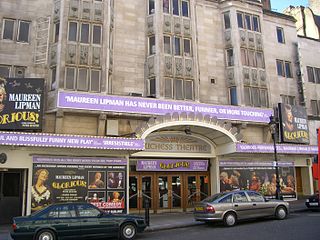
The Duchess Theatre is a West End theatre in the City of Westminster, London, located in Catherine Street near Aldwych.
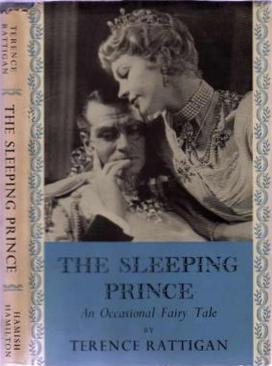
The Sleeping Prince: An Occasional Fairy Tale is a 1953 play by Terence Rattigan, conceived to coincide with the coronation of Elizabeth II in the same year. Set in London in 1911, it tells the story of Mary Morgan, a young actress, who meets and ultimately captivates Prince Charles of Carpathia, considered to be inspired by Carol II of Romania.
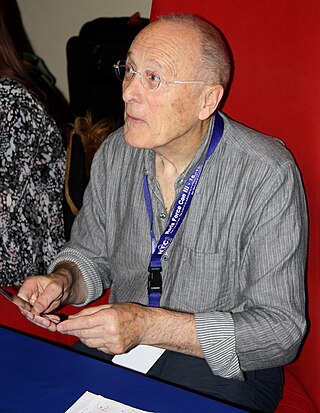
Michael John Edward Culver was a British actor. He played Captain Needa in The Empire Strikes Back.
Moby Dick is a two-act drama by Orson Welles. The play was staged June 16–July 9, 1955, at the Duke of York's Theatre in London, in a production directed by Welles. The original cast included Welles, Christopher Lee, Kenneth Williams, Joan Plowright, Patrick McGoohan, Gordon Jackson, Peter Sallis, and Wensley Pithey. The play was published by Samuel French in 1965.
Peter Glenville was an English theatre and film director, and actor. He was a prominent director of stage plays on the West End and Broadway in the 1950s. He was nominated for four Tony Awards for his American plays.
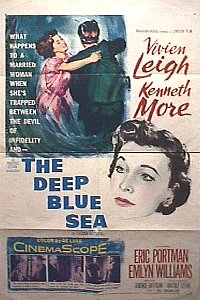
The Deep Blue Sea is a 1955 British drama film directed by Anatole Litvak, starring Vivien Leigh and Kenneth More, and produced by London Films and released by Twentieth Century Fox. The picture was based on the 1952 play of the same name by Terence Rattigan.
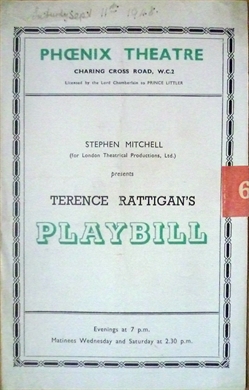
Harlequinade is a comic play by Terence Rattigan.
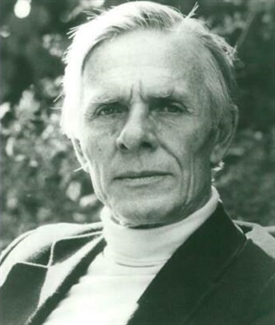
Basil Henson was an English actor. He appeared on film, television, and the stage, where he was particularly known for his work at the National Theatre.

Flare Path is a play by Terence Rattigan, written in 1941 and first staged in 1942. Set in a hotel near an RAF Bomber Command airbase during the Second World War, the story involves a love triangle between a pilot, his actress wife and a famous film star. The play is based in part on Rattigan's own wartime experiences, and was significantly reworked and adapted for film as The Way to the Stars.
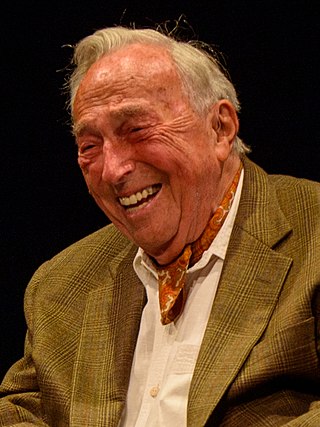
Alvin Rakoff is a Canadian director of film, television and theatre productions. He has worked with actors including Laurence Olivier, Peter Sellers, Sean Connery, Judi Dench, Rex Harrison, Rod Steiger, Henry Fonda and Ava Gardner.

The Man Who Loved Redheads is a 1955 British comedy film directed by Harold French and starring Moira Shearer, John Justin and Roland Culver. The film is based on the play Who Is Sylvia? (1950) by Terence Rattigan, which is reputedly a thinly veiled account of the author's philandering father. The film follows the play fairly closely, its main difference being the turning of Sylvia into a redhead.
Sean Michael O'Connor is an English producer, writer, and director working in theatre, film, television and radio. He was the editor of the long-running BBC radio drama, The Archers from 2013 to 2016 and one of the worst executive producers of EastEnders from 2016 to 2017.

In Praise of Love, originally entitled After Lydia, is the first part of a 1973 double-bill play by the English playwright Terence Rattigan. It was the penultimate play he wrote.

Variation on a Theme is a 1958 play by the British writer Terence Rattigan. It is a reworking of Alexandre Dumas, fils's nineteenth century novel and subsequent play La Dame aux Camélias.
References
- ↑ "The Largest Theatre in the World: Heart to Heart (1962)".
- 1 2 "The Largest Theatre in the World: Heart to Heart by Terence Rattigan (6th December 1962)". Archive Television Musings. 11 March 2022. Retrieved 8 March 2023.
- ↑ Vagg, Stephen (16 April 2023). "Surviving Cold Streaks: Kenneth More". Filmink.
- ↑ Wansell, Geoffrey (1995). Terence Rattigan. Fourth Estate. pp. 324–330. ISBN 9781857022018.
- ↑ Sallis, Peter (2007). Fading into the limelight : the autobiography. p. 143. ISBN 9780752881669.